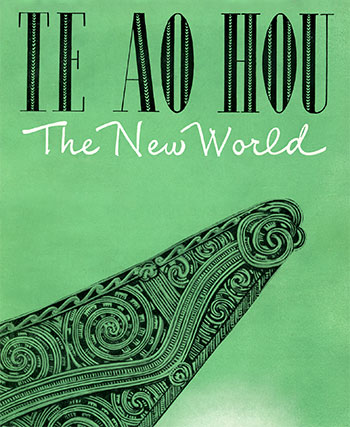Story summary
Roots of Māori fiction
Traditionally Māori literature was transmitted orally. In the 19th century Māori contributed to books written by Pākehā, and produced their own newspapers and histories.
In the early 20th century Māori were recovering from land and language loss and population decline. Most lived in rural areas, and few had access to higher education. As Māori moved into the cities after the Second World War, they had better access to education. More became readers – and then writers.
Early years
From 1952 to 1976 the Department of Māori Affairs produced the magazine Te Ao Hou. From 1955 Te Ao Hou published short fiction by Māori writers.
- Jacquie (J. C.) Sturm was the first Māori author to publish a story in English in Te Ao Hou. She wrote a collection of stories by the mid-1960s, but the book was not published until 1983.
- Witi Ihimaera was the first Māori writer to publish a book of stories (Pounamu, pounamu in 1972), and first to publish a novel (Tangi, 1973). He has written many books, and continued to write in the 2000s.
- Patricia Grace’s Waiariki (1975) was the first short-story collection by a Māori woman. Grace has published many more books of adult and children’s fiction.
Later writers
Later Māori writers wrote about the harsh realities of Māori life.
- Keri Hulme has written poetry, fiction and non-fiction. Her 1983 novel the bone people was almost not published, but went on to win the international Booker Prize.
- Alan Duff wrote about family violence and alcohol abuse in his 1990 novel Once were warriors, which was made into a successful film.
Māori fiction in the 2000s
In the 2000s Māori authors expanded their range of subjects, and some set their fiction overseas. These writers include James George, Paula Morris and Kelly Ana Morey.
Huia Publishers was set up in 1991 to promote Māori writers. It publishes work in both English and te reo Māori.
Most fiction by Māori writers is in English, but there are annual awards for stories in te reo Māori. Kāterina Te Heikōkō Mataira published a science-fiction novel in Māori, Ngā waituhi o Rēhua (2012). Fiction by Witi Ihimaera and Patricia Grace has been translated into Māori.





